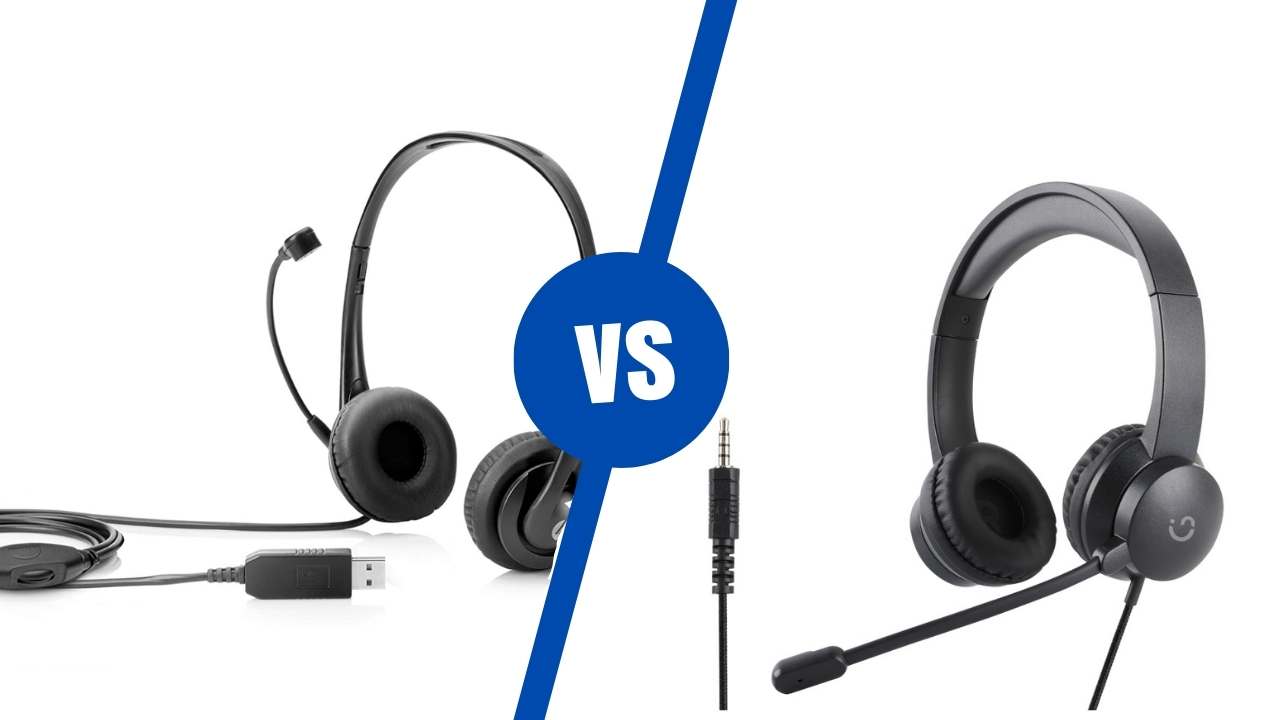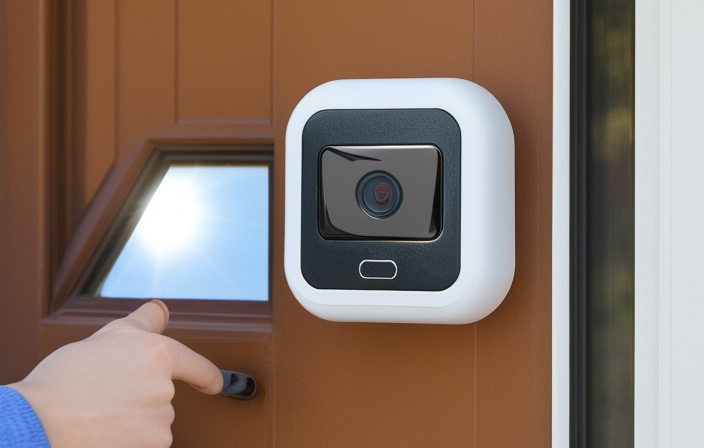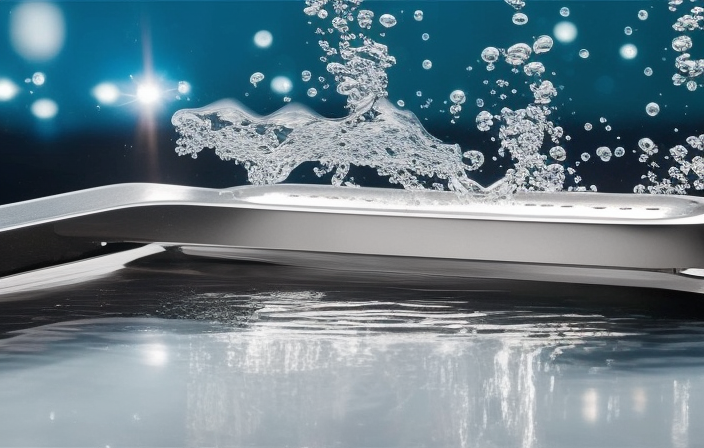In the ever-evolving world of audio technology, choosing the right audio connection for your headset can be a daunting task.
With the advent of USB and the traditional 3.5mm connection, users are presented with a range of options that can greatly impact their audio experience.
This article aims to provide an objective analysis of the pros and cons of USB and 3.5mm headsets, considering various factors such as device compatibility and usage scenarios, to assist readers in making an informed decision.
Imagine yourself in a situation where you are surrounded by a sea of audio cables, each one promising to enhance your listening pleasure. It’s easy to feel overwhelmed and unsure of which path to take.
This article seeks to unravel the complexities of the USB versus 3.5mm headset debate, empowering readers to navigate through the vast audio landscape with confidence and mastery.
By examining the advantages and disadvantages of each connection type and taking into account the specific requirements of individual devices and usage scenarios, readers will be equipped with the knowledge needed to select the audio connection that best suits their needs.
So, let us embark on this journey of discovery and unravel the mysteries of USB and 3.5mm headsets, allowing us to make the right choice for our audio experience.
Key Takeaways
- USB headsets generally provide better audio quality
- USB headsets are compatible with a wide range of devices
- USB headsets can be used with multiple devices
- USB connections ensure compatibility with potential future devices or upgrades
Pros and Cons of USB Headsets

USB headsets offer several advantages and disadvantages, making them a suitable choice for some users but not necessarily the best option for everyone.
One of the major advantages of USB headsets is their compatibility with a wide range of devices. Since USB is a standardized connection, these headsets can easily be plugged into any computer, laptop, or gaming console that has a USB port.
This versatility makes USB headsets convenient for users who frequently switch between different devices or need to use their headsets with multiple devices.
Additionally, USB headsets often come with built-in sound cards, which can improve audio quality and provide a more immersive listening experience.
However, USB headsets also have some disadvantages that users should consider. One drawback is that they rely on digital audio transmission, which can introduce latency or delay.
This delay can be noticeable during activities that require real-time audio, such as gaming or video conferencing, and may affect the overall user experience.
Another disadvantage is that USB headsets are often dependent on the device’s power supply. If the device’s battery is running low or the USB port is not providing enough power, the headset’s performance may be compromised.
Additionally, USB headsets may not be compatible with devices that do not have USB ports, such as older audio systems or smartphones without USB-C connectors.
USB headsets offer advantages such as compatibility and built-in sound cards, but they also have disadvantages like potential latency issues and dependence on the device power supply.
Users should carefully consider their specific needs and preferences before choosing a USB headset, ensuring that it is the right audio connection for their intended use.
Pros and Cons of 3.5mm Headsets

One potential downside of using 3.5mm headsets is their relatively limited compatibility with newer devices, which may require additional adapters or dongles for proper usage.
As technology advances, many newer devices are being designed without a 3.5mm audio jack, such as smartphones and tablets.
This means that individuals who prefer using 3.5mm headsets may need to purchase additional accessories in order to connect their headsets to these devices. This can be inconvenient and may result in additional expenses for the user.
Despite this disadvantage, there are still several advantages to using 3.5mm headsets. Firstly, they offer a wide range of compatibility with various devices that still have a 3.5mm audio jack, such as laptops, desktop computers, and older smartphones.
This makes them a versatile option for individuals who use multiple devices and do not want to invest in different types of headsets for each device.
Additionally, 3.5mm headsets are often more affordable compared to their USB counterparts, making them a cost-effective choice for individuals on a budget.
Lastly, the analog connection of 3.5mm headsets can provide a more stable and reliable audio experience, as it does not rely on digital conversion or processing that can sometimes introduce latency or audio artifacts.
While 3.5mm headsets may have limited compatibility with newer devices and require additional adapters, they still offer advantages such as wide compatibility with older devices, affordability, and a more stable audio experience.
Individuals who prioritize versatility, cost-effectiveness, and audio quality may find 3.5mm headsets to be the right choice for their audio needs.
Consider Your Device and Usage
Considerations regarding device compatibility and usage play a crucial role in making informed decisions about selecting the most suitable audio connection option.
When choosing between a USB and a 3.5mm headset, it is important to consider the compatibility of the headset with your device.
USB headsets are generally compatible with a wide range of devices, including computers, gaming consoles, and mobile devices.
On the other hand, 3.5mm headsets are more commonly used with devices that have a 3.5mm audio jack, such as smartphones and tablets.
In addition to device compatibility, the intended usage of the headset should also be taken into account.
USB headsets are often preferred for gaming and multimedia purposes due to their ability to deliver high-quality audio and provide additional features, such as surround sound and built-in controls.
They are also known for their digital audio processing capabilities, which can result in enhanced sound quality.
On the other hand, 3.5mm headsets are generally more suitable for everyday use and are often preferred for listening to music or making phone calls. While they may not offer the same level of audio quality as USB headsets, they are often more portable and easier to use with a wider range of devices.
Ultimately, the choice between a USB and a 3.5mm headset depends on the specific device you own and the intended usage of the headset.
Making the Right Choice
This paragraph will discuss two key points when making the right choice for your audio connection:
- Assessing your needs involves considering factors such as the type of device you have, the audio quality you desire, and your specific usage requirements.
- Additionally, it is essential to think about potential future device upgrades, as different audio connections may be compatible with certain devices and not others.
Assessing Your Needs
Assessing your needs involves evaluating the specific requirements and preferences in order to determine the most suitable audio connection, between USB and 3.5mm headset, for your individual circumstances.
Understanding audio quality is an important factor to consider when choosing between USB and 3.5mm headsets. USB headsets generally provide better audio quality compared to 3.5mm headsets.
This is because USB headsets have built-in digital-to-analog converters (DACs) that convert digital audio signals into analog signals, resulting in higher-fidelity sound.
On the other hand, 3.5mm headsets rely on the audio processing capabilities of the device they are connected to, which may vary in quality.
Therefore, if you prioritize high-quality audio, a USB headset may be the better choice for you.
Compatibility with different devices is another aspect to consider when assessing your needs. USB headsets are generally compatible with a wide range of devices, including computers, gaming consoles, and mobile devices. This versatility makes USB headsets a convenient option if you frequently switch between different devices.
On the other hand, 3.5mm headsets have more limited compatibility as they usually only work with devices that have a 3.5mm audio jack.
If you primarily use a device with a 3.5mm audio jack and do not anticipate needing to connect your headset to other devices, a 3.5mm headset may be a suitable choice for you.
However, if you require compatibility with multiple devices, a USB headset would be a more flexible option.
Assessing your needs involves considering factors such as audio quality and compatibility with different devices. If you prioritize high-quality audio and require compatibility with various devices, a USB headset would be the better choice.
On the other hand, if you primarily use a device with a 3.5mm audio jack and do not require the flexibility of connecting to different devices, a 3.5mm headset may be a suitable option for you.
By evaluating your specific requirements and preferences, you can make an informed decision and choose the audio connection that best suits your individual circumstances.
| Factors to Consider | USB Headset | 3.5mm Headset |
|---|---|---|
| Audio Quality | Generally provides better audio quality | Relies on the audio processing capabilities of the connected device |
| Compatibility | Compatible with a wide range of devices | Limited compatibility, usually only works with devices that have a 3.5mm audio jack |
| Versatility | Can be used with multiple devices | Primarily suitable for devices with a 3.5mm audio jack |
Considering Future Device Upgrades
When assessing your needs for an audio connection, it is crucial to consider the compatibility of the device you currently own and any potential future upgrades you may make.
This is because choosing the right audio connection involves not only meeting your current requirements but also future-proofing your options.
One aspect to consider is the trend in device upgrades. With technology constantly evolving and manufacturers regularly introducing new features, it is important to anticipate whether your current device will be compatible with future upgrades.
For instance, if you are using a device that only supports a 3.5mm headset connection, but the industry is moving towards USB connections, it may be wise to consider the latter option.
This way, you can ensure compatibility with potential future devices or upgrades, saving you the hassle and cost of replacing your audio connection in the near future.
By considering future device upgrades, you can make a more informed decision and choose an audio connection that will serve you well in the long run, providing a seamless transition as technology progresses.
Conclusion
In conclusion, when it comes to choosing between USB and 3.5mm headsets, it is important to consider your device and usage.
USB headsets offer the advantage of digital audio, providing better sound quality and additional features such as built-in controls.
However, they may be limited in terms of compatibility with different devices.
On the other hand, 3.5mm headsets are widely compatible and offer a simple and reliable audio connection, but they may lack the same level of audio quality and advanced features as USB headsets.
Ultimately, the right choice depends on your specific needs and preferences. If you prioritize superior audio quality and are willing to sacrifice some compatibility, a USB headset may be the ideal option for you.
On the other hand, if compatibility and simplicity are more important to you, a 3.5mm headset may be the better choice. It is crucial to carefully evaluate your device and usage requirements before making a decision.
In the quest for the perfect audio connection, pondering the pros and cons of USB and 3.5mm headsets proves paramount.
Perfection lies in the precision of device compatibility and usage considerations. USB headsets, offering digital audio delights, dazzle with their distinct features and heightened sound quality.
Yet, their limited compatibility may leave some longing for more.
Meanwhile, the 3.5mm headsets humbly hold the honor of universality, their simplicity soothing the soul.
Nevertheless, their audio quality may pale in comparison to their USB counterparts. To choose wisely, one must weigh these factors carefully.




Leave a Reply